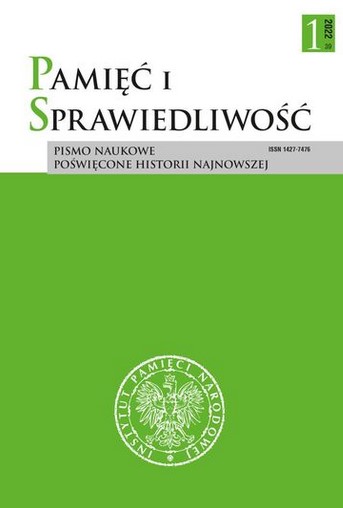The Process of Transition of the UPR Army Soldiers Interned in Poland to Civil Status and their Emigration to Czechoslovakia and France, the 1920s
The Process of Transition of the UPR Army Soldiers Interned in Poland to Civil Status and their Emigration to Czechoslovakia and France, the 1920s
Author(s): Ihor Sribnyak, NATALIA YAKOVENKO, VIKTOR MATVIYENKOSubject(s): Military history, Military policy, Interwar Period (1920 - 1939), Peace and Conflict Studies
Published by: Instytut Pamięci Narodowej
Keywords: interned Ukrainian soldiers; camp; emigration; combatants; the UPR Army; Poland; Czechoslovakia; France;
Summary/Abstract: The article reveals the peculiarities of the Process of Transition of the UPR Army soldiers interned in Poland, to civil status and their departure to Czechoslovakia and France during the 1920s. Because of the numerical reduction of internment camps, Ukrainian combatants faced the need to adapt to living conditions in their civil status and further socialise. Most of the UPR Army junior officers were well aware of the need to continue their studies, and in particular to obtain higher education in European universities, which enabled them to have a certain status in their host countries. In an effort to prepare to enter the higher schools of European countries, this category of the former military united into camp student communities. During 1922–1923, many of their members managed to enter Polish universities or go to study in Czechoslovakia, which opened up prospects for acquiring new professions and thus finding their place in life, getting well-paid jobs. Some Ukrainian public and charitable organisations functioning in Poland and Czechoslovakia rendered them significant assistance. The process of the camps’ termination in Kalisz and Szczypiorno was quite long, which afforded Ukrainian veterans an opportunity to develop adaptation mechanisms and adapt to independent life as political emigrants in Poland. In the new environment, the former internees did not stop communicating among themselves, forming public and combatant organisations. At the same time, a significant part of the former internees did not see further prospects while staying in Poland and preferred to relocate themselves in other European countries. Meeting their wishes, the Ukrainian Central Committee in Poland took care of organising their departure to France, which was used by a large part of the former internees.
Journal: Pamięć i Sprawiedliwość.
- Issue Year: 39/2022
- Issue No: 1
- Page Range: 138-159
- Page Count: 22
- Language: English

